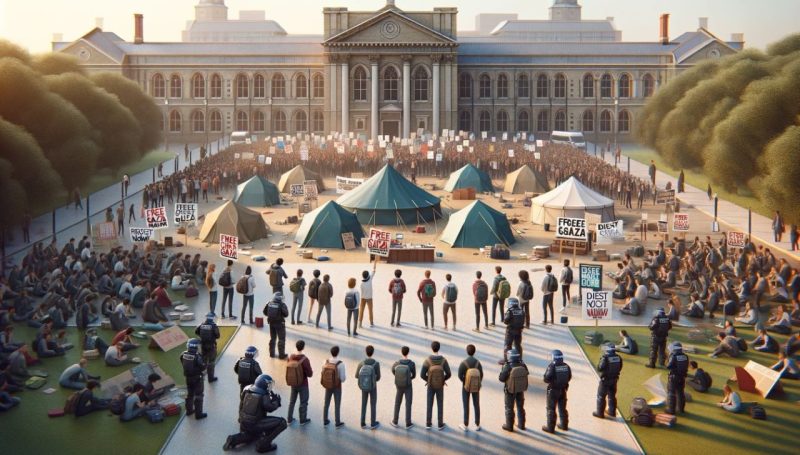
Over the past week, U.S. college campuses have become hotbeds of protest and subsequent police action as students across the country express their solidarity with the people of Gaza amid escalating conflicts in the Middle East.
From Columbia University in New York to the University of Southern California (USC) in Los Angeles, the narrative of student activism and institutional response unfolds in compelling parallel stories.
The East Coast: Columbia University’s Encampment Clear-Out
At Columbia University, the situation escalated when police were called in to dismantle a pro-Palestinian encampment set up by students. This move came after the encampment had been in place for more than 30 hours, featuring peaceful protests against the Israeli actions in Gaza. New York City police arrested over 100 individuals, citing trespassing as the primary reason for the arrests. The university administration supported the police action, pointing to violations of university policies regarding unauthorized demonstrations.
The West Coast: Tensions at USC
Simultaneously, across the country at USC, a similar scenario unfolded. Los Angeles police arrested 93 protesters on charges of trespassing as they tried to establish a protest encampment on campus grounds. These arrests were part of a larger effort by university administrations across the country to clamp down on demonstrations, which they argue disrupt academic activities and safety. The USC protests were marked by a significant police presence, which included officers equipped with batons and riot gear as they moved to disperse the protesters.
Broader Implications and University Responses
These incidents are not isolated. They connect to a broader pattern of campus activism that has seen a resurgence in recent years, particularly in relation to global political issues like the Israel-Gaza conflict. University administrations, while often supportive of free speech, have taken a firm stance against disruptions, arguing that such protests violate campus policies and pose safety risks.
The Response from the Academic and Local Communities
The community response has been mixed. Some students and faculty argue that the universities are suppressing free speech and criticize the heavy-handed policing tactics. Others support the administrations’ actions, suggesting that they are necessary to maintain order and protect the academic mission of these institutions.
Conclusion: A Continuing Dialogue
As these protests continue to unfold, they spark a vital dialogue about the balance between free expression and institutional control on college campuses. They also highlight the broader societal tensions that can infiltrate academic settings, turning them into arenas for national and international political debates. This situation serves as a reminder of the powerful voice that students have and the impactful role universities play in shaping societal discourse.
The recent wave of demonstrations and administrative responses at U.S. colleges not only mirrors the complexities of global conflicts but also the challenging dynamics of campus governance in times of societal upheaval. As the academic year progresses, all eyes will remain on these institutions to see how they navigate the fine line between maintaining order and fostering an environment where critical voices can be heard.
